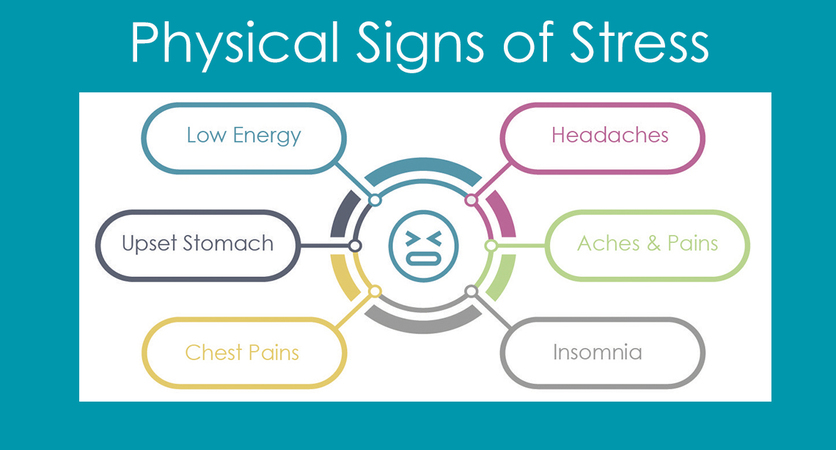Stress Awareness Day 2019
06 Nov, 20194 minutesUnderstanding and Managing StressStress is everywhere, and while a little stress is okay and...

Understanding and Managing Stress
Stress is everywhere, and while a little stress is okay and some can actually be beneficial, too much stress can wear you down and make you sick, both mentally and physically.
Stress can come in many different forms:
- Physical stress - late nights, binge drinking, illicit drug use, lack of routine, poor diet, illness
- Environment stress - poor housing, social isolation, unemployment, new environments to adjust to, such as moving house or holidays
- Emotional stress - relationship problems, peer pressure, expressed emotion within the family home, conflicting cultural values and beliefs, leaving home, marriage
- Acute life events - bereavements, physical illness/accident, arrest/imprisonment, fights, pregnancy and childbirth, rape and assault.
- Chronic stress - accommodation problems, debts, prolonged use of drugs and alcohol.
Mental health issues can also become a chronic source of stress in and of themselves.
Symptoms of Stress
The first step to controlling stress is to know the symptoms of stress, but recognizing stress symptoms may be harder than you think. Most of us are so used to being stressed; we often don't know we are stressed until we are at the breaking point.
What are the symptoms of stress?
Stress can affect all aspects of your life, including your emotions, behaviors, thinking ability, and physical health. No part of the body is immune as illustrated in the infographic above. But because people handle stress differently, symptoms of stress can vary. Symptoms can be vague and may be the same as those caused by medical conditions. So, it is important to discuss them with your doctor. You may experience any of the following symptoms of stress.
Stress in the Workplace
The Health & Safety Executive (HSE) has identified six main sources of stress in a workplace environment, which impact not only individual health but also organizational health. These are:
- Demands (workload, finances, work pattern, and work environment)
- Control (how much say the employee has in the way they work)
- Support (from the organization, line manager, and colleagues)
- Relationship (promoting positive working to avoid conflict and dealing with unacceptable behavior)
- Role (if employees understand their role and whether the organization ensures that they do not have conflicting roles)
- Change (how change is managed and communicated)
Help is Available
Stress is a part of life; what matters most is how you handle it. The best thing you can do to prevent stress overload and the health consequences that come with it is to know your stress symptoms and ask for help when it is needed. We have put together a list of helpful resources and organizations that can help you or someone you know if they are suffering from stress or any mental health issue.
Sources: MHFA England, WebMD

.jpg)










